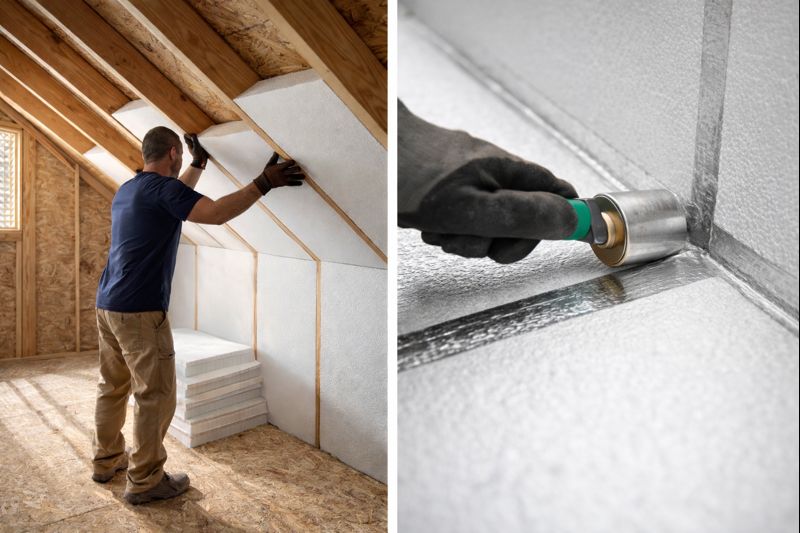Rigid Foam Insulation in South Florida for Stronger Thermal Control
Rigid foam insulation is a high-performance option for reducing heat transfer and improving comfort in South Florida homes and buildings. It is commonly used for walls, rooflines, and targeted thermal breaks where you want consistent insulation value and better moisture resistance.
Atlas Insulation installs rigid foam board with clean cuts, tight seams, and proper sealing, so the system performs instead of letting air leaks and gaps do the damage.

Best Uses for Rigid Foam Board Insulation
Rigid foam shines when you need a dependable thermal barrier and you want to control air movement at seams. For general insulation guidance, see the U.S. Department of Energy Energy Saver insulation overview.
Common applications we install
- Walls: Adds thermal control and helps reduce heat transfer through exterior assemblies.
- Rooflines and attic transitions: Useful when you need consistent coverage in targeted areas.
- Garage and bonus rooms: Helps stabilize rooms that run hotter than the rest of the home.
- Thermal breaks: Helps reduce “hot spots” where heat sneaks through framing.
Rigid foam done right (what we check)
- Tight board fit with clean cuts (no sloppy gaps)
- Seams sealed with tape or compatible sealant where needed
- Edges and penetrations addressed to reduce air movement
- Install plan that matches the assembly (walls vs roofline)
Related services: Blown-in insulation, Batt insulation, Open-cell spray foam, Closed-cell spray foam, Fi-Foil.
Our Rigid Foam Installation Process
1) Scope and plan
- Confirm where rigid foam makes the biggest impact (walls, roofline, or thermal break)
- Identify heat and air paths that need seam sealing attention
- Set a clean install plan that fits the structure
2) Install and seal
- Cut boards for tight fit and consistent coverage
- Seal seams and edges to reduce air movement
- Address penetrations and transitions that cause hot spots
3) Verify the result
- Confirm coverage and seam quality
- Clean finish and clear communication on what was done
- Recommendations if additional air sealing would help
When rigid foam is the right call
- You want consistency: stable coverage instead of thin areas and gaps.
- You need moisture resistance: in assemblies where humidity is a concern.
- You want better control: seams sealed properly to reduce unwanted air movement.
Rigid Foam Insulation Questions
Want a fast answer? Call 305-363-7980 or request a free estimate.
Q Is rigid foam insulation good for South Florida homes?
Yes. Rigid foam board can help reduce heat transfer and improve comfort when installed with tight fits and sealed seams. It works well in walls, roofline areas, and targeted thermal breaks where consistent insulation value matters.
Q Where is rigid foam typically installed?
Common placements include exterior wall assemblies, certain roofline or attic transitions, garages, and areas where you want a thermal break. The best location depends on your layout and where heat gain is happening.
Q Do seams and tape really matter with rigid foam?
Yes. Seams are a major pathway for air leakage and performance loss. Clean cuts, tight fits, and properly sealed seams help the system perform the way it is supposed to.
Q Is rigid foam better than spray foam?
It depends on the goal. Spray foam is often chosen when air sealing is the priority. Rigid foam is great when you want consistent board coverage and a reliable thermal barrier with sealed seams. We can recommend the best fit after a quick review.
Q Do you offer free estimates for rigid foam insulation?
Yes. We provide free estimates for rigid foam insulation projects across South Florida for residential and commercial properties.
Compare options: Open-cell spray foam and blown-in insulation.